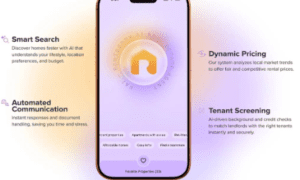The idea of using video games to reduce stress and anxiety might seem counterintuitive at first, especially given the common narrative that gaming can be addictive or overstimulating. However, psychologists have observed that certain types of games can serve as effective tools for relaxation and emotional regulation.
This isn’t just about escaping reality; it’s about engaging in activities that can help recalibrate our nervous systems and provide a sense of control in a chaotic world. Psychologists are increasingly incorporating games into cognitive-behavioral therapy for conditions like anxiety and depression, offering a unique blend of distraction, engagement, and even emotional processing.
Game therapy for all ages
Psychologists have studied the impact of gaming interventions on mental health in diverse populations, and the research in this area has expanded significantly over the past decade. This reflects a broader cultural shift in how we view video games, not just as entertainment, but as potential tools for mental health. The majority of these studies focus on young adults, likely because this demographic is both highly engaged with gaming and often navigating significant life stressors, such as academic pressure or career uncertainty.
However, the benefits of gaming aren’t limited to this age group. Middle-aged adults, who are often juggling work, family, and financial responsibilities, have also shown positive responses to gaming as a stress-relief tool. For older adults, games can provide not only cognitive stimulation but also a sense of connection and relaxation.
Gaming for better mental health
One of the most compelling findings is that games can be helpful across a wide range of mental and physical health conditions. For example, individuals with post-traumatic stress disorder, depression, or anxiety have reported reductions in symptoms after engaging in certain types of games. Similarly, people managing chronic illnesses or recovering from physical injuries have found games to be a useful distraction from pain and discomfort. This versatility makes gaming a promising adjunct to traditional therapies, particularly for those who may not respond well to medication or talk therapy alone.
Adam Horvath, a clinical psychologist at Personal Psychology, a therapy clinic on Sydney’s Lower North Shore, captures this idea succinctly: “Games can provide a safe space for people to explore emotions, build resilience, and practice problem-solving in a low-stakes environment. When used mindfully, they can be a powerful tool for self-regulation and emotional release.”
Counselling without noticing
Psychologists often recommend games that align with specific therapeutic goals, such as emotional regulation or mindfulness, as games offer a structured yet flexible way for individuals to engage with their emotions and build coping skills, often without even realizing they’re effectively in counselling.
The types of games that seem to be most effective vary depending on the individual and their needs. Games that involve physical movement, such as those played with motion-sensing consoles, have been particularly beneficial for reducing stress and anxiety. These games not only provide a mental distraction but also encourage physical activity, which is known to boost mood and reduce tension.
Puzzle games, with their focus on problem-solving and pattern recognition, have also been shown to lower anxiety levels, likely because they engage the brain in a way that’s both challenging and rewarding.
Interestingly, even games that might seem intense or action-packed can have a positive impact. For some people, the adrenaline rush from a fast-paced game can actually help them feel more energized and less weighed down by stress. This might seem paradoxical, but it aligns with the idea that stress isn’t inherently bad, it’s about how we channel it.
For others, however, these types of games can be overstimulating and may even increase stress levels. This highlights the importance of individual preferences and the need for a personalized approach when using games as a therapeutic tool.
Case study – gaming and anxiety
The psychologist explained that a client, a young professional struggling with chronic anxiety, discovered that playing a simple puzzle game for a few minutes each day helped her feel more grounded and focused. Another client, an older adult recovering from a stroke, used a motion-based game to improve his coordination and regain a sense of accomplishment. These experiences underscore the potential of games to meet people where they are and provide a sense of mastery and control, which can be incredibly healing.
Competitive and Violent games are not helping your mental health
That said, it’s important to approach gaming with a critical eye. Not all games are created equal, and some may exacerbate stress or anxiety rather than alleviate it.
Psychologists caution that competitive or violent games may exacerbate stress or trigger negative emotional responses in vulnerable individuals, as these can trigger feelings of frustration or agitation in certain individuals.
Additionally, the platform and duration of play matter. While short, focused gaming sessions can be beneficial, excessive or compulsive gaming can lead to negative outcomes, such as social isolation or disrupted sleep patterns. As with any tool, moderation and intentionality are key.
Multiplayer games as social therapy
Another consideration is the social aspect of gaming. Many games now offer multiplayer options, which can foster a sense of connection and community. For individuals who feel isolated or lonely, this can be a powerful antidote to stress. However, it’s also important to be mindful of the quality of these interactions.
Psychologists note that positive social interactions in multiplayer games can enhance mental well-being, but warn against toxic environments that may increase anxiety or inadequacy. Encouraging clients to seek out positive, supportive gaming communities can help mitigate these risks.





























